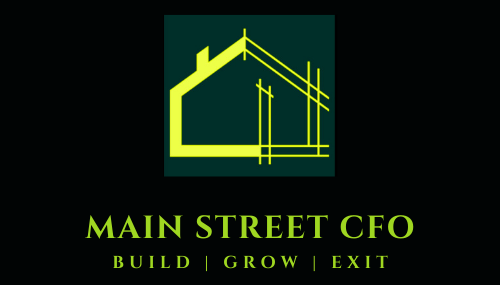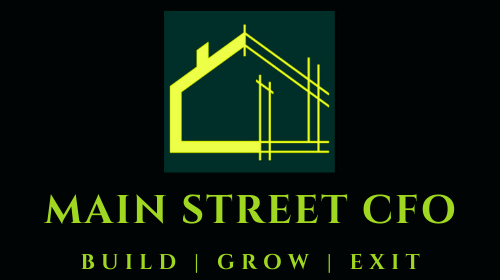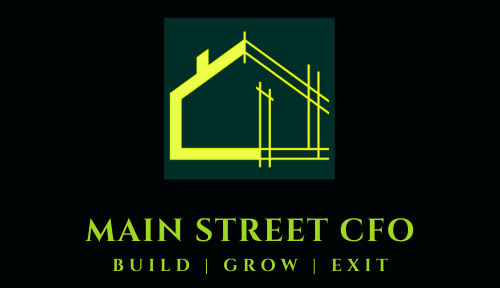How a Fractional CFO helps you value your business to exit..
A Fractional CFO can increase the value of your business...
How does a fractional CFO increase the valuation of a business preparing for exit or sale:
1. Provide Strategies to Enhance Revenue Growth
- Identify and develop high-margin revenue streams.
- Analyze and implement pricing strategies to optimize profitability without losing competitiveness.
- Diversify customer base to reduce reliance on a few large clients.
2. Improve Profit Margins
- Conduct cost analyses to reduce operational inefficiencies and overhead expenses in a way that improves efficiency, cash flow and profitability. This should be done while maintaining and improving customer experience.
- Negotiate better terms with suppliers/vendors to lower the cost of goods sold (COGS).
- Review operations to provide strategic focus on high-margin products or services while phasing out less profitable offerings.
3. Build Recurring Revenue Streams
- Develop subscription-based or long-term contracts to create predictable, recurring revenue.
- Analyze lead flow and work to improve customer retention rates and lifetime value (LTV) as part of the business’s growth strategy.
4. Strengthen Financial Reporting
- Produce accurate, GAAP-compliant financial statements to instill buyer, investor and other third-party confidence.
- Establish real-time dashboards and detailed KPIs for monthly performance meetings.
5. Optimize Working Capital
- Strengthen accounts receivable collections to improve cash flow.
- Modify accounts payable terms with suppliers and vendors without damaging relationships.
- Reduce inventory carrying costs by improving supply chain efficiency and implementing strong purchasing controls/SOPs.
6. Minimize Risks
- Implement strategies to control and monitor liabilities such as legal, tax, or contractual issues.
- Ensure compliance with regulatory agencies and requirements.
- Establish processes to decrease reliance on key personnel by documenting processes and building a strong leadership team and delegation procedures.
- Develop and monitor SOP’s to ensure efficiency throughout the entire business.
7. Strengthen Customer Relationships
- Monitor/review high customer satisfaction scores, retention rates, and testimonials.
- Lock in key clients with long-term contracts to demonstrate revenue stability.
8. Demonstrate Scalability
- Highlight operational efficiencies and develop an infrastructure capable of supporting future growth.
- Develop detailed plans for scaling operations to include detailed investment needs and the potential ROI expected.
9. Quantify Intangible Assets
- Quantify the value of intellectual property (IP), trademarks, patents, or proprietary technologies.
- Spotlight the company’s brand strength, market positioning, and reputation.
10. Implement Advanced Tax Strategies
- Structure the business for optimal tax efficiency (before and after) resulting from the sale (e.g., entity type, deductions, capital gains, etc.).
- Provide insight into potential tax strategies available, as well as the tax ramifications of the sale to both the buyer and seller.
By implementing these strategies, a fractional CFO can significantly improve the business's appeal to potential buyers, ensuring a higher valuation during the sale. Additionally, it helps a business owner see value in something that they may have not seen while handling the day to day operations.
- Mike Henninger, EA, MSCTA, Fractional CFO













